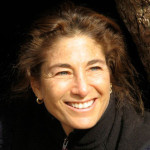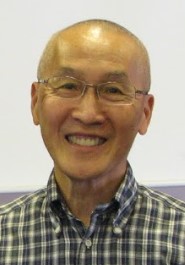EDG’s previous Dharma Talks are now available on YouTube.
2025 Dharma Talks Playlist:
2024 Dharma Talks Playlist:
2023 Dharma Talks Playlist:
10:00 AM – 10:30AM: Guided meditation
10:30 AM – 11:30AM: Dharma talk
11:30AM: Vegetarian lunch
Also, you can sign up for the weekly newsletter to receive information about these weekly Dharma talks.
On the September 17th, 2023, EDG talk, Venerable Hung I gave the Dharma talk. Shown above is Venerable Hung I and the persons attending the talk
On September 3rd, 2023, EDG finally got together (in person) at Kwan Yin Hall (Jade Buddha Temple, Houston, Texas). We will meet every Sunday (10AM Central for meditation, and 10:30AM for Dharma talk. In addition, we are still continuing to show all Dharma talks on-line too (via Zoom). See the image above.
 Update Satellite Meditation Program (SMG)
Update Satellite Meditation Program (SMG)SMG is a non-sectarian meditation group of mindfulness practitioners. We focus on supporting each other in developing beneficial habits and growing mindfulness skills. We are composed of small neighborhood groups that meet once a week.
For an in-depth overview, visit our webpage here.
If you are interested in joining us and have question, please email us via the Contact Us page. To register, follow the link to Mobilize, our group communication platform.
As of February 1st, 2020, SMG Jade Buddha moved their mid-week class to Saturday morning from 9:30am to 11:30am.
The month of February brings Valentine’s Day, a romantic holiday, celebrating love and affection. Here are two Buddhist psychologists, authors, and thought leaders sharing their reflection on acceptance and compassion.
 Jack Kornfield on Compassion for Imperfection
Jack Kornfield on Compassion for ImperfectionWhat if you could love yourself fully, including your imperfections? What if you could love others in the same way? You might fear that by loving your anger or laziness, your addictions or your anxiety, that you will never change for the better, that you will become more angry, lazy, addicted, or anxious. But if you experiment, you will see that what happens is often the opposite. As you love and accept yourself in a bigger, wiser love, your fear and aggression, your neediness and inertia, lose their hold. …Continue reading…
 Tara Brach on Learning to Go Through Life with Love in Your Heart
Tara Brach on Learning to Go Through Life with Love in Your HeartA Q&A with Buddhist psychologist and renowned meditation teacher Tara Brach about offering radical compassion to yourself and others. Many of us have the habit of judging ourselves and others harshly, drawing lines of blame that separate us from each other. But there’s another way, writes internationally recognized meditation teacher Tara Brach in her new book. Radical Compassion is a way of practicing acceptance and care for ourselves and others that allows us to stay present to all that life brings and stay connected to each other. …Continue reading…
Josten distinctly remembers when he left Hong Kong over 30 years ago, that he would not be interested in Buddhism. Until many years later, he attended a Dharma class near his home in Northwest Houston and learned about the Buddha’s true words, Jade Buddha Temple and the English Dharma Group. And this started his meditation “career,” which continues to be a vital part of his life.
Josten served the Texas Buddhist Association in various roles as a long-time EDG coordinator and three-term Board member. More recently, he developed EDG’s semi-annual four-week class on Mindfulness in Urban Living, which he leads in its fourth year. Additionally, he spearheads a local community meditation program called SMG, Satellite Meditation Groups. Meditators meet weekly in three geographical areas around the Greater Houston area.
Meditation is an essential part of his life, and Josten is inspired by sharing his passion with others. It is especially gratifying for him to see dedicated members that join EDG’s classes and take the instructions seriously. The inspiration comes when many begin to see benefits from their earnest practice of the mindfulness exercises.

“Personally, my saving grace is the spiritual community (Kalyāṇa-mittatā), nowadays called “support group.”
“Meditation is always present deep inside me, doing it, however, is a different ball game,” Josten points out. “If I didn’t continually associate with people that were interested in meditation, my 20+ years of practice might not have happened.”
An internet search on this topic reveals a multitude of excuses for not starting or maintaining a regular meditation practice:
According to Mindful Magazine:
“If any of these excuses sound familiar, you are not alone. And so, I encourage you to join our weekly Sunday meditation program at Jade Buddha Temple from 10-10:30 am. I am leaving you with a few articles; they might inspire you in the coming New Year 2020. After all, it’s the time of the year to set internal and external intentions!”

As a partner of Compassionate Houston, the Texas Buddhist Association joins various faith and non-profit organizations in celebrating the Charter for Compassion’s 10th anniversary.
The Charter is an umbrella organization of many compassionate cities and individuals around the globe, united in the principle of creating a respectful, kind, and compassionate world.
The Buddha taught that to realize enlightenment, we must develop two qualities: wisdom and compassion, two wings that work together to enable flying.
EDG, on behalf of TBA, is taking part in celebrating the 10th anniversary by reading the Charter of Compassion during our Sunday Dharma talk on November 10, 2009,
For information on the Charter and Compassionate Houston, see the download link below:
Charter for Compassion with brief overview of Compassionate Houston